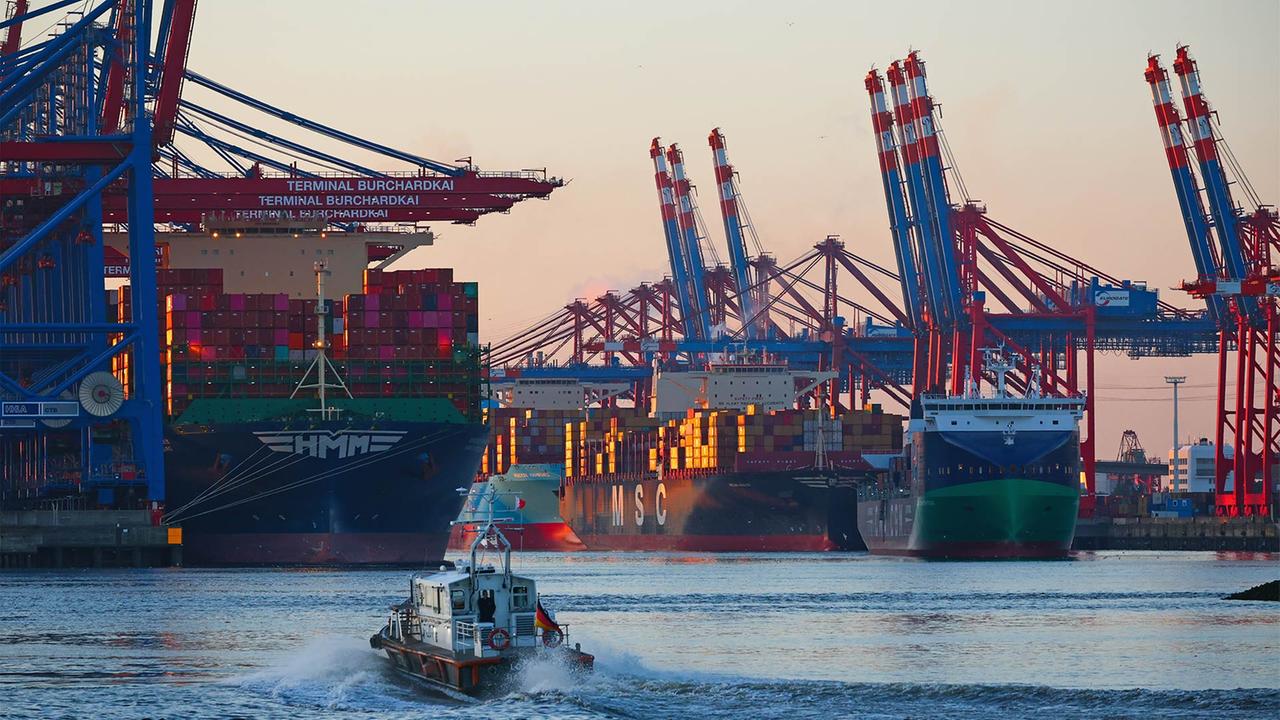analysis
Stagnation instead of growth: The ifo Institute has lowered its economic forecast, and other institutes are also no longer expecting growth for 2024. How bad is the economy really?
Once again, there is disappointing news coming from the country's major economic research institutes: The Munich-based ifo Institute has revised its forecast for the German economy for 2024 downwards, the Kiel Institute for the World Economy (IfW) also expects economic output to shrink, and the Federal Association of Wholesale, Foreign Trade and Services (BGA) also complains about a deteriorating mood in foreign trade.
Specifically, in their current autumn forecast, researchers at the ifo Institute assume that gross domestic product is likely to stagnate this year after a decline of 0.3 percent last year. In June, the Munich-based researchers had still expected growth of 0.4 percent.
“The German economy is stuck and is languishing in a slump while other countries are feeling the upswing,” concludes Timo Wollmershäuser, head of economics at the ifo. A stronger increase of 1.5 percent is not expected until 2026.
IfW predicts recession
Other forecasts are even more pessimistic: In its autumn forecast, the Kiel Institute for the World Economy (IfW) expects gross domestic product to fall by 0.1 percent this year compared to last year. This would mean that the German economy would decline for the second time in a row and slide deeper into recession. In its summer forecast, the institute had expected growth of 0.2 percent.
“Overall, the German economy is stuttering into an anemic recovery, partly because economic policy is unable to set reliable course,” said IfW economic chief Stefan Kooths.
Structural problems burden
The experts from the ifo Institute and the IfW cite several reasons for these disappointing forecasts, which are increasingly of a “structural nature,” said IfW President Moritz Schularick. According to the expert, the federal government's budget cuts are putting a strain on the economy, while old core industries have not reacted to changes for too long.
The ifo experts also emphasize this: “Decarbonization, digitalization, demographic change, the corona pandemic, energy price shocks and a changing role of China in the global economy are putting established business models under pressure and forcing companies to adapt their production structures.”
Car manufacturers in crisis
One example of this is the car industry: it is in crisis, the business climate index of the German automotive industry, which is compiled by the ifo Institute, darkened in August. The indicator fell to minus 24.7 points, after minus 18.5 in July. Germany's largest car manufacturer, VW, announced tough austerity measures this week, and a factory closure in Germany and redundancies are no longer being ruled out.
According to ifo expert Anita Wölfl, the difficult situation facing car manufacturers in this country is also due to the fact that the German car industry reacted very late to the issue of electromobility. And now, according to the expert, it is also facing the challenge that – unlike new pure electric suppliers from China, for example – it produces both combustion engines and electric cars with dual structures.
BGA Association expects less foreign trade
However, that is not the only reason: the German car industry is one of those sectors of the economy in this country that is heavily dependent on foreign trade – and in which the mood is also deteriorating. The BGA expects exports from Germany to fall by 0.3 percent this year compared to last year. “Our economic model is under massive pressure,” it says in a statement.
This is bad news for the entire German economy, as exports accounted for almost half of Germany's economic output last year. Specifically, according to World Bank data, 47.1 percent of the goods produced in Germany went abroad in 2023, and many jobs in this country depend on foreign trade.
Glimmer of hope of the Industrial orders
In this context, the current positive order trend in German industry is an indication of a possible bottoming out, but is not yet a clear signal of a trend reversal. In July, incoming orders rose by 2.9 percent month-on-month, according to the Federal Statistical Office.
This was the second increase in a row, after incoming orders had fallen continuously for five months. However, the latest figures were heavily influenced by large orders. Excluding these, incoming orders were 0.4 percent lower than in June, according to the statisticians.
Fear for jobs and income
German consumers are unlikely to close the expected gap in foreign trade – especially not given the current poor mood. The barometer for the consumer climate fell to minus 22.0 points in September from a revised minus 18.6 points in the previous month, according to GfK and the Nuremberg Institute for Market Decisions (NIM). “Negative reports about job security, which are making consumers more pessimistic again,” made a quick recovery in consumer sentiment “seem unlikely,” judged NIM consumer expert Rolf Bürkl.
The number of unemployed rose again in August: The Federal Employment Agency (BA) registered 2,872,000 unemployed in August. Compared to August of last year, the number of unemployed is 176,000 higher. “The labor market continues to feel the effects of economic stagnation,” said the BA's CEO, Andrea Nahles.
In addition, there are more and more company bankruptcies and plans by various companies to cut staff. This is increasing many people's concerns about their jobs and income, said NIM consumer expert Bürkl.
Germans save more
The reluctance to spend money can also be seen in the recent increase in the savings rate: According to the ifo Institute, the savings rate rose by 0.5 percentage points in the last two quarters to 11.3 percent of disposable income. This is significantly higher than the average for the ten years before the corona pandemic.
Moritz Kraemer, chief economist at LBBW Bank, stresses in a guest article in the “Financial Times” that German consumers have every reason to save: “A rapidly ageing society with an unfunded public pension system. The large generations born in the 1960s are beginning to retire. Over the next five years, Germany will lose one percent of its working population every year.”
Recruiting skilled workers from abroad could help. But the dialogue on this is being poisoned by the current asylum debate, stresses IfW President Moritz Schularick: “As long as it stays that way, we can watch as our growth potential becomes smaller and smaller,” he said.





